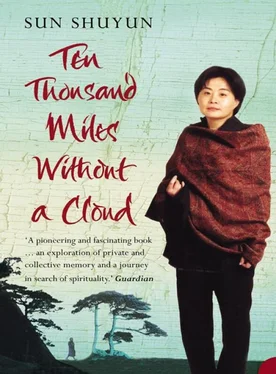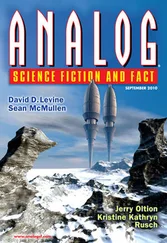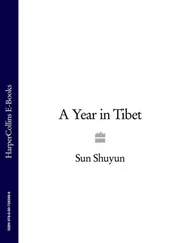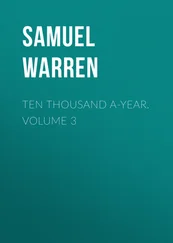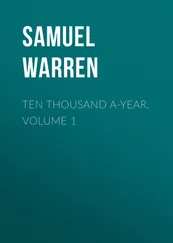From the Wild Horse Spring, Xuanzang and his horse drank long and deep. Then they followed the beaten track. After two days he was out of the Gobi, and outside China. He was now in the Western Region, a vast territory between the Jade Gate and the Pamir Mountains, consisting mainly of the Taklamakan Desert, the second biggest in the world, with a string of independent oasis city-states along its edge, all depending on the Silk Road for their survival and wealth. Xuanzang would have known the history of the region well. China took it in the first century BC after the Silk Road was opened, but lost it to various nomadic peoples of the Eurasian steppes. At the point at which Xuanzang arrived, the Turks were the overlords, but the Chinese wanted it back.
Today the area is called the Xinjiang Uighur Autonomous Region. The Uighurs were a nomadic tribe of Turkic origin, who migrated from the Eurasian steppes to the Taklamakan in the ninth century AD, not long after Xuanzang passed through the region. It was the Uighurs who have left us some of the most splendid Buddhist art, Nestorian Christian artefacts, and rare Manichaean documents and paintings. Eventually they took to Islam with the same zeal as they had embraced other religions of the Silk Road. Highly mobile with their versatile and speedy horses, they were one of the biggest threats to China on its northern and northwestern borders. But unlike many other powerful nomadic peoples, the Uighurs never managed to rule China. In the eighteenth century, after the longest military campaign in Chinese history, the region finally became part of the empire again.
Turfan is one of the biggest oases and cities in Xinjiang, situated on the eastern edge of the Taklamakan. A guide from a travel agency would meet me at the station. ‘How will I recognize you?’ I asked him on the phone after I had told him what I wanted to see in Turfan. ‘I’m fat, like a laughing Buddha outside a temple. People call me Fat Ma.’ The description was accurate. At the exit of my compartment, I spotted him immediately. He was dressed in a t-shirt and wiping sweat from his face. We looked at each other and smiled.
‘You need some rest in the hotel?’ he asked, taking my rucksack from me. ‘You said you’re interested in history and what Xuanzang did in Turfan. You’re in for a big treat. Anyway you can make your mind up later, we are still fifty miles from the city.’ While we walked to his car I mentioned the oddness of the location of the station, both here and in Anxi. ‘Perhaps they could only build straight lines in those days,’ he laughed, and then added more seriously: ‘We did so many crazy things back then. I wouldn’t be surprised if the decision where to put the stations was completely random.’
In five minutes his battered Beijing jeep was out of the station and driving at 100 kph on a tar road as soft as melting butter. It was late summer but Fat Ma was panting more than the old engine. I was a bit worried. ‘You should have seen me a few weeks ago. It was over fifty degrees every day. I hardly dared to move. Do you know how officials conducted their business in the old days?’ I shook my head. ‘They read their papers in the bath-tub soaking in ice-cold water.’ But the extreme weather here is not due to global warming. The city is right in the centre of a depression – in fact, it is the second lowest spot on earth, after the Dead Sea. Fat Ma told me Turfan means ‘lowland’ in the Uighur language. It has been called the Oasis of Fire.
I told him I did not need a rest – he was so entertaining I wouldn’t be able to fall asleep anyway. So he suggested we head for the ruins of Gaochang city. ‘Your monk really had a hell of a time there,’ he said. We were back in the middle of the desert. There were no trees, no farms, not a speck of green anywhere. Perhaps if you are brought up there you learn to spot small details and it seems infinitely variegated. But to the unaccustomed eye it is sad in its monotony, a faceless plain of unrelieved sameness. Surrounded by a void, it was hard to imagine that we were on what was once a thriving commercial thoroughfare, or that this poem, written in the seventh century, actually described what Xuanzang would have seen on his journey through the area:
A good day to start on a long journey,
Wagon after wagon passes through.
The camels-bells never stop,
They are carrying the white chain (silk) to Anxi *.
After driving for twenty miles in the desert, my eyes caught some trees in the distance. ‘The oasis,’ I nearly shouted, pointing to a spot of green on the horizon. ‘Don’t get too excited,’ Fat Ma said, ‘It’s still quite a way off.’
We drove for another ten miles. Then I saw poplar trees and suddenly – fields of melons; plantations of vines inside and outside courtyards, spreading on to the walls; children playing by the road, carts loaded with cotton. I had not travelled in the blazing sun for days on end like the old caravans, nor did I experience any danger, but I was overwhelmed by the sudden fertility of the oasis – the renewal of life and succour for the traveller in the midst of the desert. I could only imagine how Xuanzang would have felt when he stepped from the sterility of his Gobi trek into the luxuriance of Gaochang.
The remains of Gaochang city are very grand, fitting for one of the oldest and wealthiest Silk Road kingdoms. For centuries, it was the second major oasis outside China, the starting point for the grassland Silk Road, and an obligatory stop for travellers. The mud walls that surrounded it, now broken in places, were more than ten metres high and five kilometres long. We entered from the western gate – quite a small one, but it opened up a broad, impressive view of the city within. The fallen houses and lonely pillars made it look even bigger. Under the blue sky, clouds flew past as if speeded up by a special-effects camera. As far as the eye could see, rugged walls stood erect after more than a thousand years. It was hard to believe that something built of mud could last so long. Straight ahead of us in the centre of the city was a tall, impressive terrace built of baked red clay bricks, the remaining foundations alone more than fifteen metres high. ‘We think this is King Qu Wentai’s royal palace,’ Fat Ma said. I felt my pulse quicken. This was it – the place where Xuanzang had one of his most dramatic experiences on his journey.
The King of Gaochang was a fervent Buddhist and so his capital was a city of temples: Buddhist, Zoroastrian, Manichaean, with one for every hundred inhabitants. There were thousands of monks in the kingdom, but the king felt the country lacked a great master. He was inspired when he heard the praises that caravan traders heaped on Xuanzang after they had listened to his preaching in Liangzhou. It reminded him of the wonderful monasteries and profound masters he had encountered in the Chinese capital: he had gone there to pay tribute to the Chinese court three years earlier. A close relationship with his powerful neighbour was vital for the survival of his small kingdom. He was also very impressed with the way the Chinese conducted themselves – on his return, he ordered all his people to adopt the hairstyles of the gentlemen and ladies in Chang’an. Now he could have an erudite Chinese master from the very centre of learning to enlighten him and his people. How exciting it would be! The Chinese have a saying: ‘Something you could only meet but not seek.’ He felt this was his chance. He sent his envoys to meet Xuanzang. They abducted him to Gaochang, despite his plans to travel by a different route.
It was here, in this very palace, that the king paced about when he heard the Chinese master would be arriving that night. He forgot to eat, or sleep. At midnight, the guards announced Xuanzang’s arrival and he proceeded by torchlight to meet him. The king was so excited that despite Xuanzang’s fatigue, he insisted on talking to him all night and for the next ten days, for one purpose alone: to ask him to stay on as the master for his people.
Читать дальше
